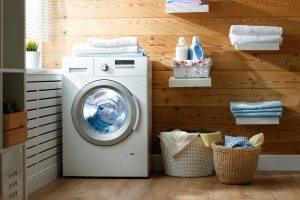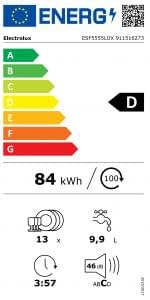Research was conducted on the importance of energy saving in electronic devices
Customers consider it important that their devices are energy-efficient, however, the majority of them are not aware of the meaning of energy labels, and not everyone is willing to pay significantly more for machines with a better energy rating, according to recent research by the Euronics Technical Supermarket chain.

Energy consumption has been an important issue for a long time, and many people pay great attention to it, on the one hand, from the point of view of the family budget, and, on the other hand, from the point of view of environmental protection, which is increasingly coming to the fore. In addition, overhead has become a particularly relevant topic in recent months. For this very reason, Euronics was curious to know how much Hungarian customers pay attention to the energy saving of newly purchased devices when choosing, and assessed their attitude to the topic in the framework of a nationally representative survey.
Do we need an energy-saving machine?
During the survey, only very few people (12% in total) answered that energy saving does not, or only slightly, influences their purchasing decision. Most people (46%) choose an energy-saving machine if the device otherwise meets the most important aspects for them, but the number of those for whom this is an essential aspect is only slightly behind (42%). In this question, the majority is influenced by rising energy prices (62%), but many of them (54%) also consider environmental protection aspects. The respondents found energy saving to be particularly important for refrigerators (83%), washing machines (74%), freezers (67%) and boilers (63%), while the least important for televisions (42%) and microwave ovens (37%) . In general, in the case of both household and entertainment electronic equipment, the women respondents see the issue of energy saving as more important than the men (and therefore also the overall average).

The issue of energy labels
The energy classification of the appliances will be indicated to consumers by the renewed energy labels in 2021. Only 20 percent of those surveyed review all the details based on the label, 33 percent browse through what they see, 40 percent spend less energy on this information, and 7 percent do not deal with the label at all. The 30-39 age group is the most aware in this area: compared to the entire sample, the number of those who spend more time studying energy labels is significantly higher in this group. In the older age group (40-49-year-olds), the number of those who review the information on the labels is higher than the average, although not completely thoroughly. At the same time, the majority (83%) still think that the previous “A++” marking represents the highest category in terms of energy saving in the case of changed labels, and only a tenth of respondents correctly know that the “A” marking now represents the top.
How much would we pay for it?
The majority of respondents are also willing to pay a premium so that the purchased device consumes less energy. 43 percent of them are willing to pay more by 5-7%, 25 percent by 8-10%, and 8 percent by even 10-20%, so only about a quarter of the respondents refrain from doing so. Despite the fact that, as we saw earlier, energy saving is a more important issue for women, men are still willing to pay a much higher price for it. – The results of our research allow us to conclude that the industry still has a task to do in terms of educating consumers about energy conservation. – said Bálint Fazekas, Euronics commercial executive director. – We consider it very important that the message that buying energy-saving machines is a good investment reaches more and more customers. In addition to the current energy prices, the initial one-time additional investment of a modern device of at least category D – approximately equivalent to the old A, moderately energy-saving – can pay for itself in an extremely short time, depending on the use.

Related news
Related news
Tesco sets out store expansion plans in 2026 including five former Amazon Fresh sites
🎧 Hallgasd a cikket: Lejátszás Szünet Folytatás Leállítás Nyelv: Auto…
Read more >







